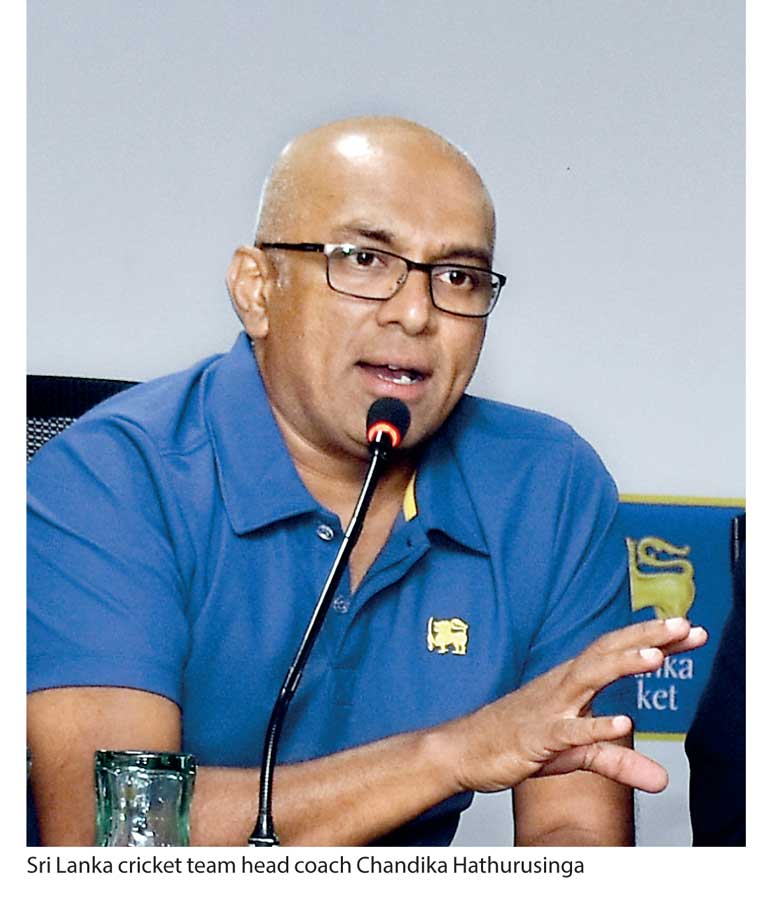Monday Feb 16, 2026
Monday Feb 16, 2026
Friday, 22 December 2017 00:00 - - {{hitsCtrl.values.hits}}
 ESPNCricinfo: Chandika Hathurusingha will have a free hand as Sri Lanka’s head coach, or so, at least, the board has promised.
ESPNCricinfo: Chandika Hathurusingha will have a free hand as Sri Lanka’s head coach, or so, at least, the board has promised.
During his two-and-a-half-year stint as Bangladesh’s coach, Hathurusingha had wielded substantial influence in the system, and had been a selector besides. Though he will not be a selector in the Sri Lanka set-up for now, he has signed on with SLC partly because the board had assured him a degree of control and independence - the likes of which he had become accustomed to at his former job.
SLC, however, has a track record of exerting undue influence on coaches in recent years. The board has blown through ten head coaches since 2011, and the most-recent permanent appointment - Graham Ford - had quit in June largely because he found his turf repeatedly encroached upon.
The present board has not exactly admitted to its past mistakes - president Thilanga Sumathipala suggested there has been no board influence on coaches since early 2015, when he was elected. However, he did state, in strong terms, that Hathurusingha would have autonomy. Wednesday was Hathurusingha’s first official day as Sri Lanka coach.
“There’s no point in hiring one of the best coaches in the world and then failing to give him the freedom to do his job,” Sumathipala said. “I’m not a coach and no one in the board knows more about the job of a coach than Mr Hathurusingha. We have to give him freedom. But we also trust that he will do his job well and have an expectation that he will answer the questions that we have for him from time to time.”
That the board picked this coach in the first place was down to Hathurusingha’s focus on analysis and data, but also thanks to his ability to communicate in the players’ first language, Sumathipala said. Of Sri Lanka’s coaches since 2000, only Marvan Atapattu has spoken Sinhala - the only language many players speak.
“Hathurusingha’s approach is just right for the kind of players we have, but more than anything he is Sri Lankan and so can communicate well with the players - that is another advantage,” Sumathipala said. “We also found that Hathuru is one of the top world-class coaches because he is someone who believes in the deployment of technology, and he gets on with the game with a scientific footing. He carries all the knowledge a modern-day coach should have.”
Hathurusingha himself, meanwhile, said that while there was promising talent in Sri Lanka’s national set-up, the team had underperformed in recent months. He was hesitant to impose performance deadlines on himself and the team, but had ideas on what may help correct the team’s trajectory.
“Consistent selection is needed,” Hathurusingha said. “We need to figure out the right combination for the respective formats. And when we’ve had some time to observe the players, then we can get a more accurate idea of how to fulfill the potential of this team.
“It will take some time. The players need to get used to the way that I think and operate, the different ways of training. If there is a way to fix everything by changing one thing, then the improvement might be quicker - but it’s important to have some patience. We might win our next tour, but then again we might have more challenges in future matches. It’s imperative that we look at the bigger picture.”